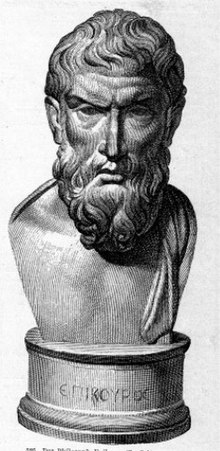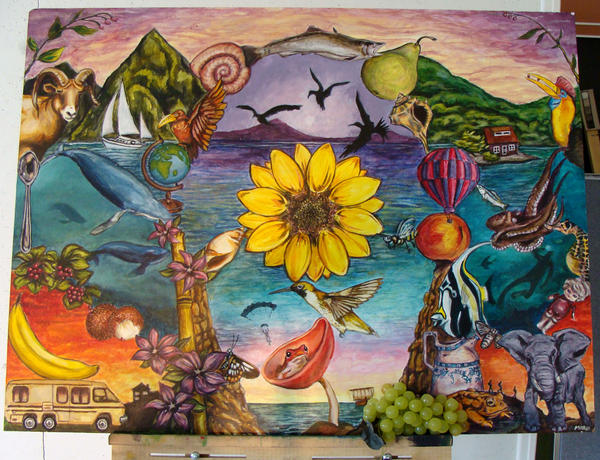This post is the second (and final)
post of my afterlife presentation. In this post, I will discuss some of the
approaches that exclude the idea of a typical afterlife. This post includes the
monistic idea of Epicurus, the “Afterlife” community of Samuel Scheffler, and
the Pantheism/Buddhism beliefs. These three beliefs aren’t all of the beliefs
that do not include the typical afterlives, but they are the focus of my
discussion.
The
question we will be looking at for each belief is this: What happens at death
and beyond?
 Well,
Epicurus’ answer was that nothing happened. He believed that since we didn’t
experience anything BEFORE life, we surely wouldn’t experience anything AFTER
life. This would obviously be a monistic idea from Epicurus; he assumes that the
body and the mind (or soul) die together, and that the mind (or soul) cannot
live past the death of the body. This is a very logical conclusion if a
monistic approach is taken, as it just assumes that the death of a person is
the ultimate and final end of their life.
Well,
Epicurus’ answer was that nothing happened. He believed that since we didn’t
experience anything BEFORE life, we surely wouldn’t experience anything AFTER
life. This would obviously be a monistic idea from Epicurus; he assumes that the
body and the mind (or soul) die together, and that the mind (or soul) cannot
live past the death of the body. This is a very logical conclusion if a
monistic approach is taken, as it just assumes that the death of a person is
the ultimate and final end of their life.
The next
theory that I’ll discuss is the Epicurean theory of death with a spin on it;
Scheffler offers a thought experiment that adds to the Epicurean theory by
proposing this: “would it matter if the entire world expired shortly after your
own death?” This thought experiment is what presents Scheffler’s main point. He
acknowledges that the life that exists after ours, the lives we know AND the
ones we do not, are important to us. He points out that these literal after-lives are what exists of the afterlife.
The existence of life after us and the existences of the lives that we have
loved and affected is enough for an afterlife. This is, in my opinion, a
beautiful idea. Whether it is applied to a monistic or a dualistic approach,
the continued existence of life is significant and beautiful enough for us to
endure the idea of death.
 The last
theory we will look at is the theory of the Pantheist/Buddhist afterlife. This
theory says that we do not experience our own afterlife, but we attribute to
the general energy and life of the world around us. Since this afterlife is not
actually experienced, the actual life
is of other things; the nature, environment, and people around us get our
afterlife-energy in order to live on or take our place after we die.
The last
theory we will look at is the theory of the Pantheist/Buddhist afterlife. This
theory says that we do not experience our own afterlife, but we attribute to
the general energy and life of the world around us. Since this afterlife is not
actually experienced, the actual life
is of other things; the nature, environment, and people around us get our
afterlife-energy in order to live on or take our place after we die.
All of
these theories, whether affirming or denying afterlife, are merely ideas. We do
not know the truth with 100% confirming evidence, nor can we confirm the
correct theory. However, this is when faith is presented, or believing without
demanding complete evidence. Although nobody has the physical authority to talk
of afterlife, considering we have never been after our lives, we do continually
theorize to try to see how the afterlife may or may not exist.

Section 14 Group 1
ReplyDelete*Sorry I forgot to put the section number in the title!
I agree, David, Scheffler's "Afterlife" is a beautiful thought. I personally find it deeply consoling.
ReplyDelete"nobody has the physical authority to talk of afterlife, considering we have never been after our lives" - unless you countenance the testimony of people like A.J. Ayer, with their Near Death Experiences etc. But I notice that NDE stories are never accompanied by "physical evidence."